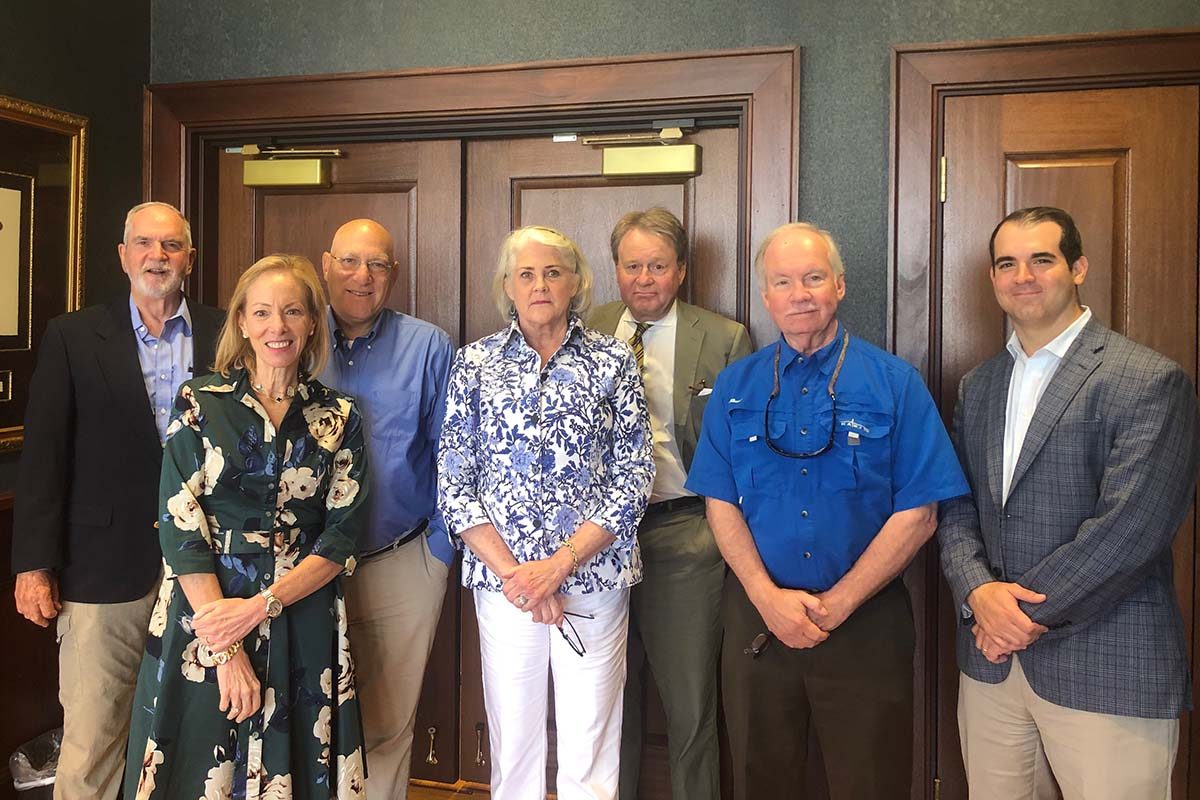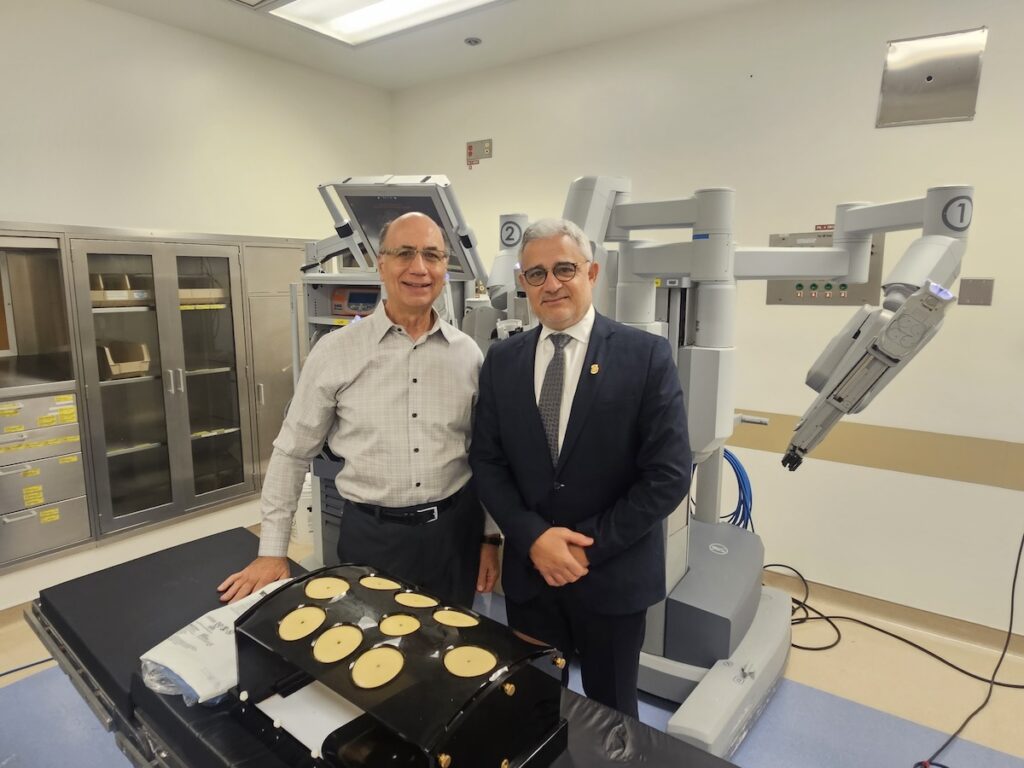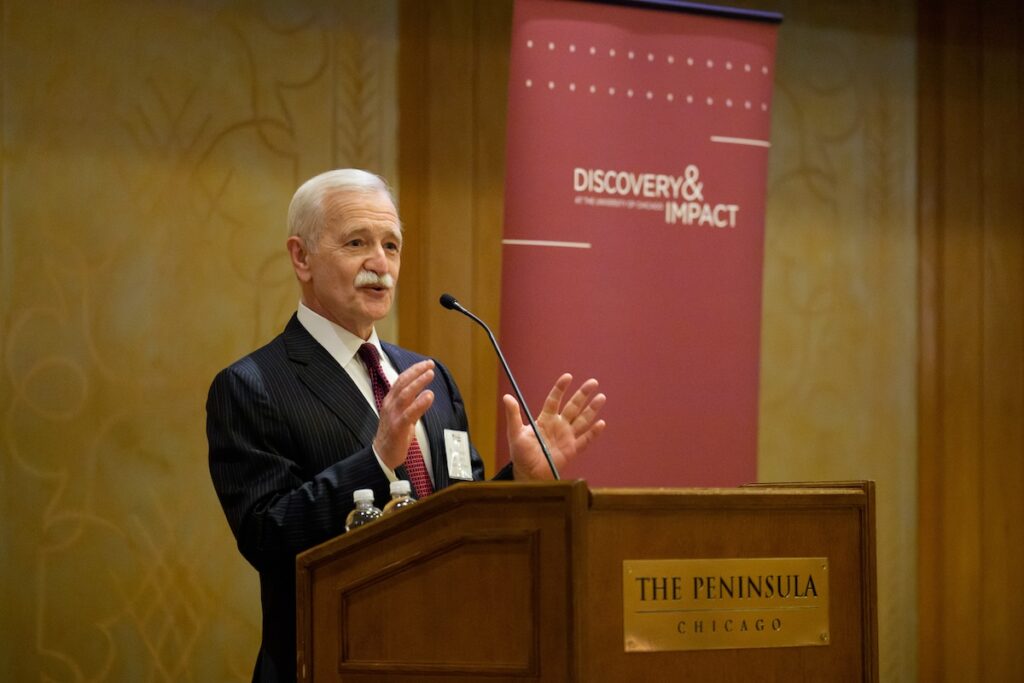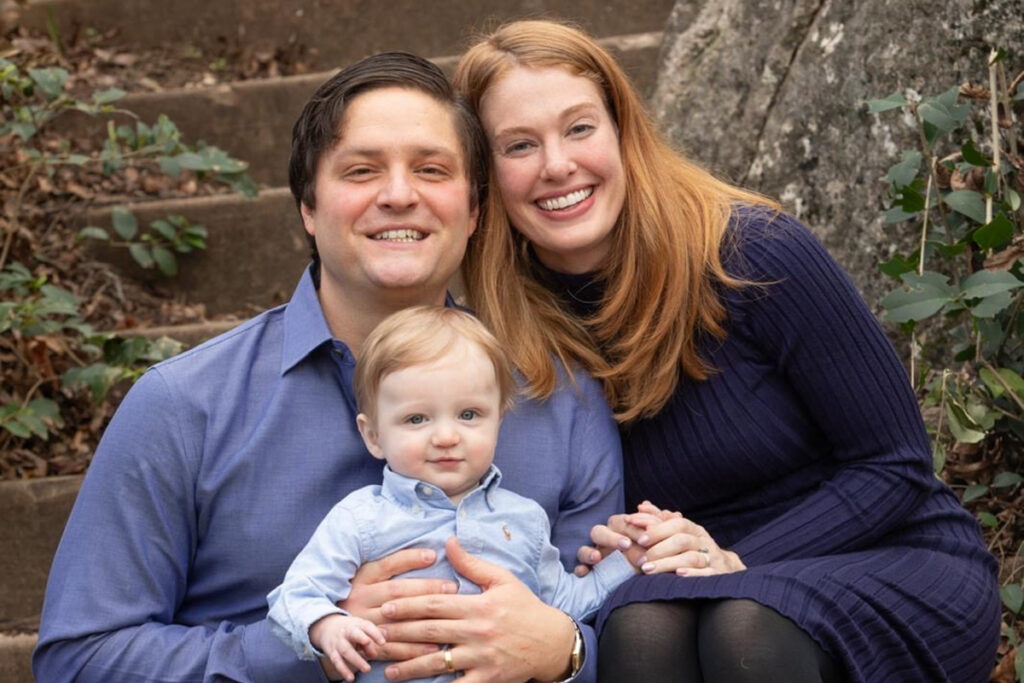In 1944, Ben May Sr.—a child of Jewish immigrants who built his Alabama lumber company into a highly successful enterprise—mailed a letter to Charles Huggins, MD, a physician and scientist at the University of Chicago. May had heard of Huggins’s cancer research and was offering to help.
May believed in the power of science to improve human life.
“For Ben May, science was truth itself,” said Martin Perlman, MD, former committee member of the Ben May Charitable Trust and May’s personal physician in Alabama.
A shrewd and well-regarded businessman, May also believed in finding the right person for the job. He saw in Huggins a kindred spirit with an impressive mind and a compassion that matched his own.
May’s letter sparked a lifelong friendship.
Past discoveries propel future work
With May’s support, the Ben May Laboratory for Cancer Research at the University of Chicago was established in 1951, and Huggins had the tools necessary to advance his then-radical theory that cancer was intimately tied to normal bodily functions. In 1966, Huggins was awarded the Nobel Prize in Medicine for his demonstration that prostate cancer uses hormones to fuel its growth—work that brought new hope to patients previously deemed untreatable and laid the groundwork for modern hormonal cancer treatments.
Over time, the Ben May Laboratory grew into the Ben May Institute, and then the Ben May Department for Cancer Research. Ben May researchers built on Huggins’s findings to devise treatment and diagnostic methods still in use today.
Current Ben May Department Chair Geoffrey Greene, PhD, continues this legacy of field-defining research, as he investigates methods for defeating therapy-resistant breast cancers and using hormone replacement therapy to reduce cancer risk in post-menopausal women.
As the University of Chicago celebrates 70 years of support from Ben May Sr. and the Ben May Charitable Trust established in May’s memory, it’s clear that May’s early investment and ongoing support from the trust continue to advance research and improve lives today.
“Contributions from the Ben May Charitable Trust have been a lifeblood of the Ben May Department for Cancer Research,” said Greene. “Their support has played an essential role in seeding transformational discoveries by allowing us to recruit the brightest minds in the field, secure necessary infrastructure and the most advanced equipment, supplement faculty research, and sustain our researchers between major funding streams.”
Ben May Sr. may not have imagined that his initial gift in 1951 would lead to millions of dollars in support for cancer research thanks to consistent donations made over several decades. Current committee members of the trust—including Vivian G. Johnston III and Vivian G. Johnston V, Lynette and Steven Koppel, and Allison and John Peebles—are all close family or professional friends of the trust’s original committee members and remain dedicated to furthering this cause to benefit future generations.
A path toward a cure
The Ben May Department for Cancer Research comprises researchers dedicated to furthering understanding of the molecular, cellular, and genetic events that cause cancer. Grounded in scientific inquiry, the department seeks to inform better ways to prevent, diagnose, and treat cancer. Ben May researchers partner with experts across the University, including the University of Chicago Medicine Comprehensive Cancer Center, Argonne National Laboratory, Pritzker School of Molecular Engineering, and more.
One recent key area of focus is immunotherapy, which recruits the body’s immune system to attack cancer cells. This approach has shown remarkable results in the past decade, offering a new avenue to treat the disease. The therapy has even shown potential to imbue long-term immunity, protecting patients from relapse.
This progress would not be possible without foundational work led by Frank W. Fitch, MD, PhD, former Ben May director, who advanced our understanding of T cells—white blood cells that serve as the immune system’s frontline operators—and developed new tools for studying these cells in the lab, which accelerated a range of immunology research.
Today, thanks to support from the Ben May Charitable Trust, experts like Thomas Gajewski, MD, PhD, continue to pursue innovative research into the complex interactions between cancer and the immune system. Gajewski is investigating why some patients don’t respond to immunotherapy in order to devise new strategies to overcome this resistance. This work has led to the discovery that specific microbes in the digestive tract can improve response rates to immunotherapy.
Next-generation therapeutic targets
Beyond immunotherapy, Ben May researchers are leading an array of investigations with enormous potential, including studying cancer’s metabolic pathways. Using a sophisticated research tool funded by the Ben May Charitable Trust, Alexander Muir, PhD, developed a technique to measure nutrient levels and nutrient stress within the pancreatic tumor microenvironment—an approach he hopes will allow him to identify new ways to target cancer cells and reinvigorate the anti-cancer immune system. Meanwhile, Marsha Rosner, PhD, found that two inexpensive, generic drugs could work in tandem to disrupt key metabolic pathways in aggressive breast cancers to prevent their growth.
Lev Becker, PhD, is also leading work with exciting implications for the future of cancer care. Using an instrument called a flow cytometer funded by the Ben May Charitable Trust, Becker analyzes macrophages―immune cells that are the first line of defense against foreign viruses, bacteria, or other invaders. In collaboration with Rosner and fellow Ben May researcher Yingming Zhao, PhD, respectively, this work has led to the discovery of obesity’s role in tumor formation and shed light on a 90-year-old mystery in cancer biology. More recently, Becker identified a molecule that has been shown to kill cancer cells irrespective of their genetic abnormalities, while also being non-toxic to non-cancerous cells.
Looking ahead
Since opening its doors 70 years ago, the Ben May Laboratory has developed into a unique force in cancer research, inspiring a creative, problem-solving culture and spurring revolutionary discoveries that continue to propel cancer research today. Collectively, Ben May researchers have contributed to the successful treatment of millions of patients—including May’s sister who, nearly 20 years after the establishment of the Ben May Laboratory, was diagnosed with cancer and saved by Huggins’s pioneering research and methods.
Thanks to May’s foresight and longstanding annual support from the Ben May Charitable Trust, our researchers are answering cancer’s most complex questions to improve diagnosis and treatment for patients here in Chicago and worldwide.
“Mr. May was a generous and caring man who was committed to supporting medical research,” said committee member Lynette Koppel. “We are impressed by what the scientists in the Ben May Department have done and continue to do and feel it’s a privilege to be able to support this work going forward.”
To learn more about how you can help advance the important work taking place in the Ben May Department for Cancer Research, please contact Lisa Sharpe, associate director of Individual Giving, at lsharpe@mbsd.uchicago.edu.




